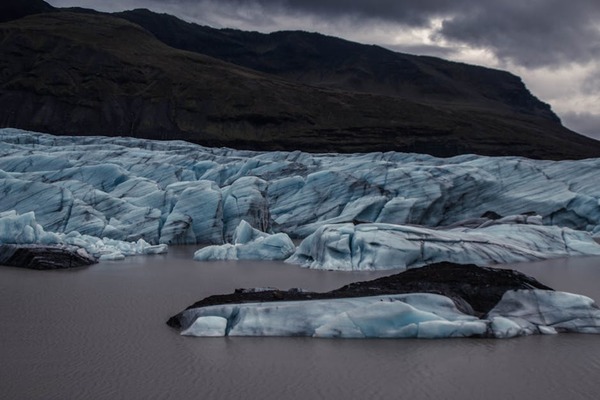- Attorney-Lawyer.esq
- Blog
- Environmental Law and Climate Change Litigation
Environmental Law and Climate Change Litigation

Environmental law plays a crucial role in regulating human activities and protecting the environment. With the growing threat of climate change, the need for strong environmental regulations and climate change litigation has become more important than ever. This article will explore the relationship between environmental law and climate change litigation, highlighting the key trends, challenges, and strategies in this field.
Overview of Environmental Law
Environmental law encompasses a wide range of legal principles, regulations, and treaties that aim to protect the environment and natural resources. It covers various aspects such as air and water quality, waste management, biodiversity conservation, and climate change mitigation. Environmental laws are enacted at the national, regional, and international levels to ensure compliance with environmental standards and promote sustainable development.
Importance of Environmental Regulations
Environmental regulations are essential to prevent pollution, conserve natural resources, and address environmental issues such as climate change. These regulations set standards for industries, businesses, and individuals to minimize their impact on the environment. By enforcing environmental regulations, governments can reduce greenhouse gas emissions, protect ecosystems, and promote environmental sustainability.
Climate Change Litigation Trends
Climate change litigation has been on the rise in recent years, with individuals, organizations, and governments taking legal action to hold polluters accountable for their contribution to climate change. These lawsuits seek to compel companies to reduce their emissions, adapt to climate impacts, and compensate for environmental damages. Climate change litigation trends indicate a growing recognition of the legal responsibility to address climate change.
Impact of Climate Change on Environment
Climate change poses a significant threat to the environment, leading to rising temperatures, extreme weather events, sea-level rise, and biodiversity loss. These impacts have far-reaching consequences for ecosystems, communities, and economies around the world. The urgency of addressing climate change is paramount to safeguarding the environment and ensuring a sustainable future for generations to come.
Legal Challenges in Climate Change Cases
Climate change cases face various legal challenges, including jurisdictional issues, causation complexities, and evidentiary requirements. Proving liability for climate change damages can be challenging, especially when multiple parties are involved or when the effects of climate change are diffuse and widespread. Overcoming these legal challenges requires strategic litigation approaches and innovative legal arguments.
Role of Government in Environmental Protection
Governments play a crucial role in environmental protection by enacting and enforcing environmental laws, regulations, and policies. They have the authority to set environmental standards, monitor compliance, and implement measures to mitigate environmental harm. Governments also have a responsibility to engage with stakeholders, promote public awareness, and allocate resources for environmental protection efforts.
Key Players in Climate Change Litigation
Key players in climate change litigation include environmental activists, non-governmental organizations, affected communities, and government agencies. These stakeholders work together to advocate for climate justice, hold polluters accountable, and seek legal remedies for climate change impacts. Their collective efforts have led to landmark court decisions, policy changes, and corporate accountability measures.
Environmental Law vs. Climate Change
While environmental law encompasses a broader scope of environmental issues, climate change litigation focuses specifically on legal actions related to climate change. Climate change litigation seeks to address the root causes of climate change, such as greenhouse gas emissions, deforestation, and fossil fuel extraction. By combining the principles of environmental law with climate change litigation, stakeholders can address the urgent need for climate action.
Strategies for Climate Change Litigation
Effective strategies for climate change litigation include strategic litigation planning, collaboration with experts, gathering compelling evidence, and engaging with the media and public. By building a strong legal case, leveraging scientific research, and mobilizing public support, climate change litigators can increase their chances of success in court. These strategies help advance climate change litigation and drive meaningful change.
International Agreements on Climate Change
International agreements such as the Paris Agreement play a crucial role in coordinating global efforts to address climate change. These agreements set targets for greenhouse gas emissions reductions, finance climate adaptation measures, and promote international cooperation on climate action. By ratifying and implementing international agreements on climate change, countries can work together to achieve a sustainable and resilient future.
Future of Environmental Law
The future of environmental law lies in strengthening regulations, enhancing enforcement mechanisms, and promoting innovation in sustainable practices. As the impacts of climate change intensify, the need for robust environmental laws and climate change litigation will continue to grow. The legal community, policymakers, and stakeholders must work together to advance environmental protection efforts and mitigate the effects of climate change.
===
Advancing climate change litigation is crucial to addressing the urgent challenges posed by climate change and protecting the environment for future generations. By leveraging the principles of environmental law, advocating for climate justice, and pursuing innovative legal strategies, stakeholders can drive meaningful change and hold accountable those responsible for climate change. As climate change litigation evolves, it will play a vital role in shaping environmental policies, promoting sustainability, and fostering a more resilient and sustainable future.




